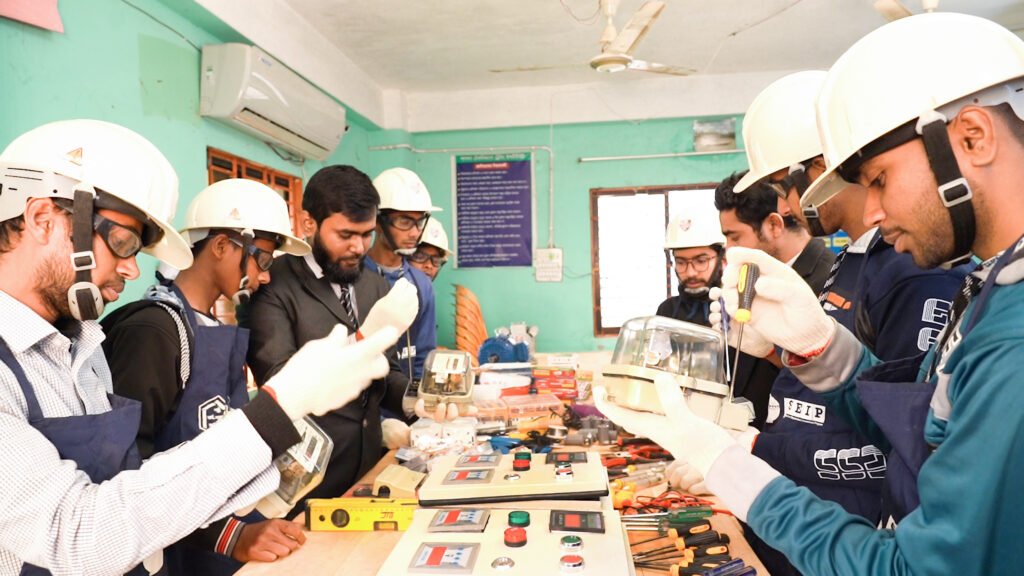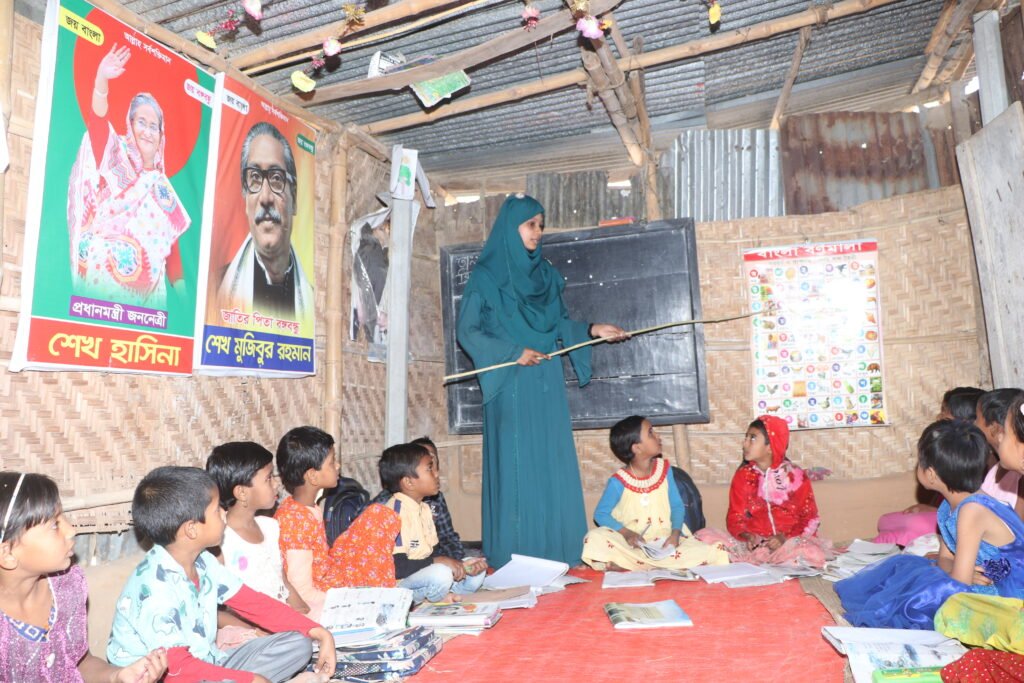Empowering Communities: The Education System of Shapla Gram Unnayan Sangstha
In the heart of Rajshahi district in Bangladesh lies a beacon of hope and progress – the Shapla Gram Unnayan Sangstha (SGUS). This non-governmental organization has been tirelessly working towards the betterment of the community, particularly focusing on education. At the core of SGUS’s initiatives are its technical education programs and non-formal afternoon primary level school, both of which serve as catalysts for empowerment and transformation.
Technical Education

SGUS understands the importance of technical education in today’s rapidly evolving world. With the job market becoming increasingly competitive and skill-oriented, providing youth with practical skills is paramount. Hence, SGUS has established technical education programs aimed at equipping young individuals with the skills necessary to thrive in various industries.
These programs cover a wide array of vocational skills including Refrigeration and Airconditioning, Electric Installation and Maintainance and Computer Basic skill like Microsoft Office application and Database Programming. Through hands-on training and theoretical instruction, students not only learn the fundamentals of their chosen trade but also gain valuable insights into industry best practices. This holistic approach ensures that graduates are not just skilled workers but also knowledgeable professionals ready to contribute meaningfully to the workforce.
Moreover, SGUS fosters partnerships with local businesses and industries to provide internship opportunities for its students. This not only exposes students to real-world scenarios but also facilitates their transition from the classroom to the workplace seamlessly. By bridging the gap between education and employment, SGUS empowers youth to become self-reliant and economically independent members of society.
Non-Formal Primary Level Education

In addition to its technical education programs, SGUS operates a non-formal afternoon primary level school catering to children from marginalized communities. Recognizing the importance of education in breaking the cycle of poverty, SGUS strives to ensure that every child has access to quality education regardless of their socio-economic background.
The school follows a flexible curriculum designed to accommodate the diverse needs of its students. With small class sizes and personalized attention, teachers can provide individualized support to students, fostering a conducive learning environment. Beyond traditional subjects like mathematics and language, the curriculum also emphasizes practical life skills, hygiene education, and environmental awareness, equipping students with the knowledge and tools necessary for holistic development.
Furthermore, SGUS actively engages parents and community members in the education process, recognizing that their involvement is crucial for the success of the students. Through parent-teacher meetings, workshops, and awareness campaigns, SGUS encourages community participation and support, thereby fostering a sense of ownership and accountability towards education.
A Blueprint for Sustainable Development
In essence, the education system of Shapla Gram Unnayan Sangstha embodies its commitment to empowering communities and driving sustainable development. By offering both technical education for youth and non-formal primary education for children, SGUS addresses the multi-faceted needs of the community, laying the foundation for a brighter and more prosperous future.
Through its innovative approaches, SGUS not only imparts knowledge and skills but also instills values of self-reliance, empowerment, and social responsibility. As a result, graduates emerge not just as educated individuals but as agents of change, poised to positively impact their families, communities, and society at large.
In the journey towards progress and development, education serves as the most potent tool, and Shapla Gram Unnayan Sangstha stands as a shining example of how it can be wielded to transform lives and uplift communities.

